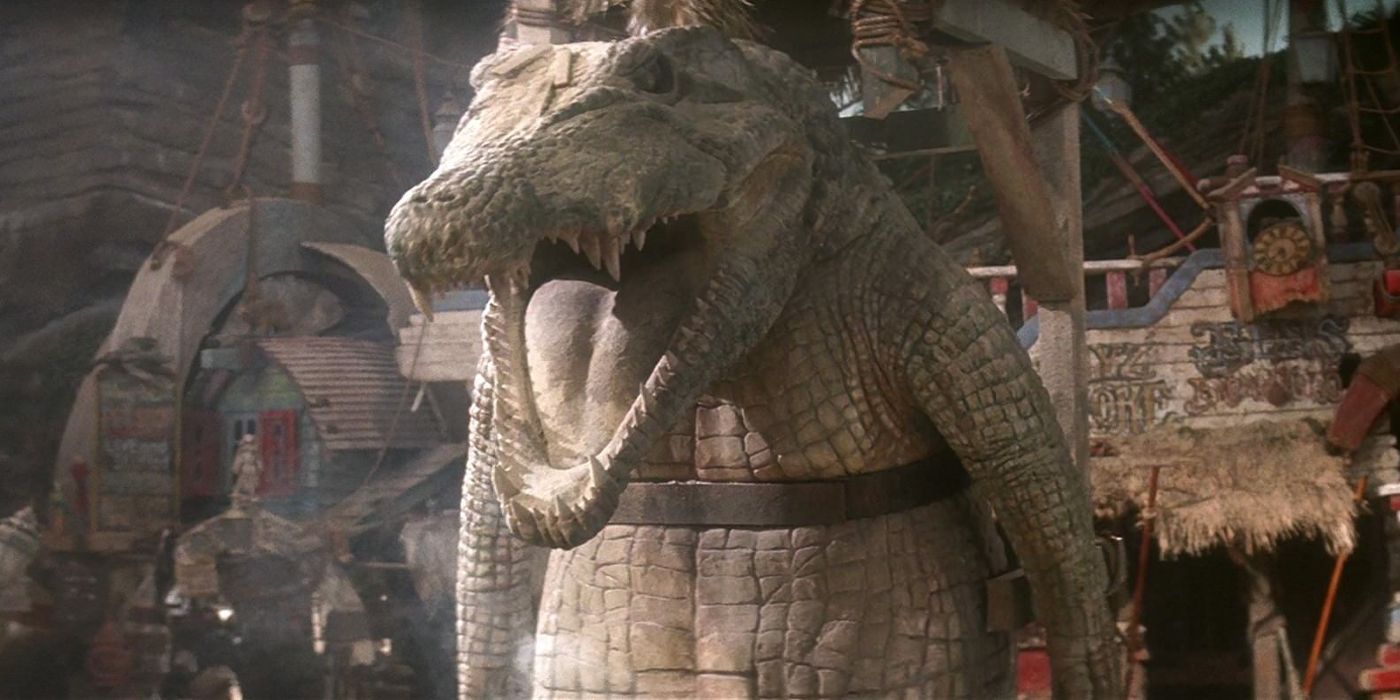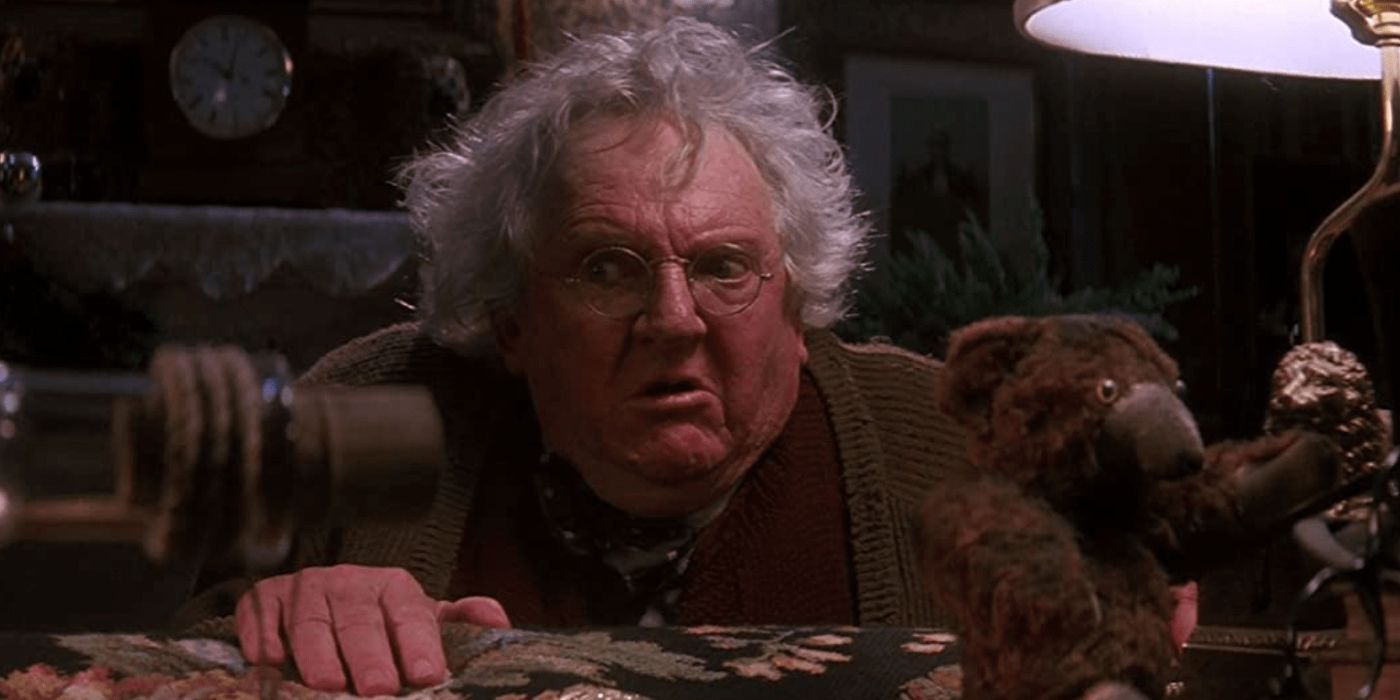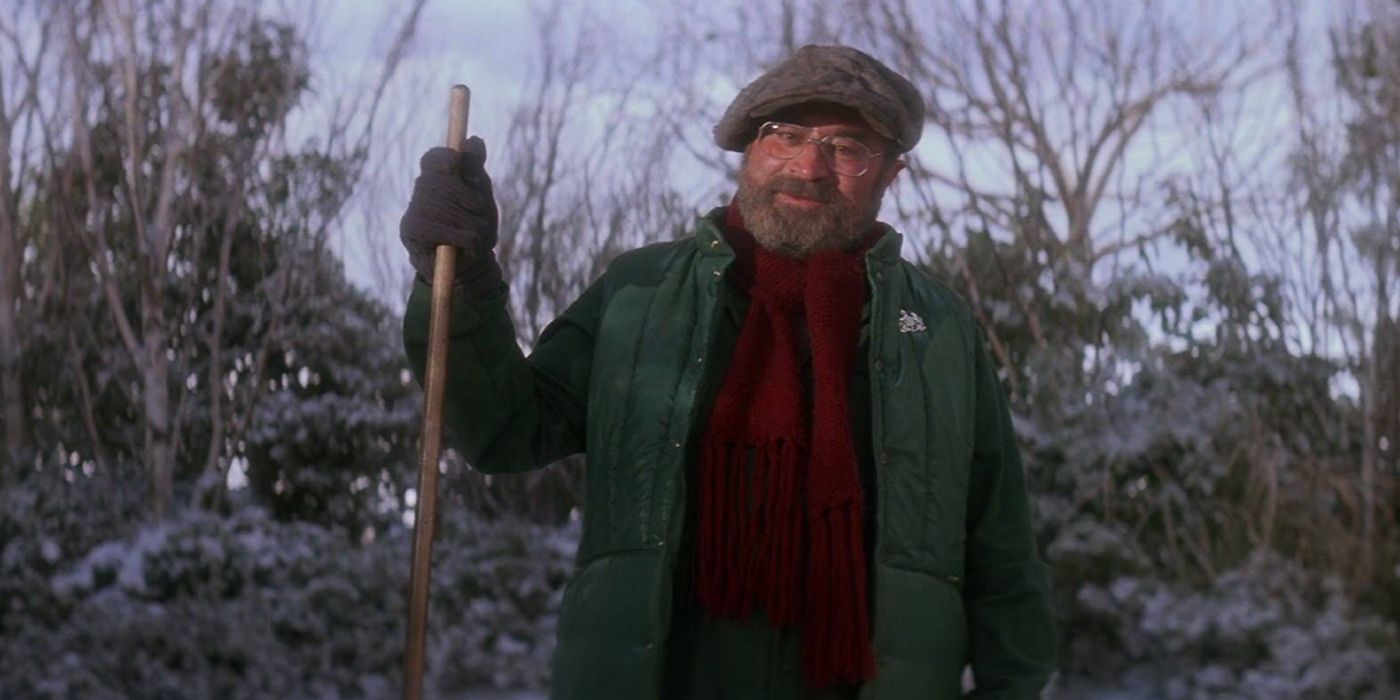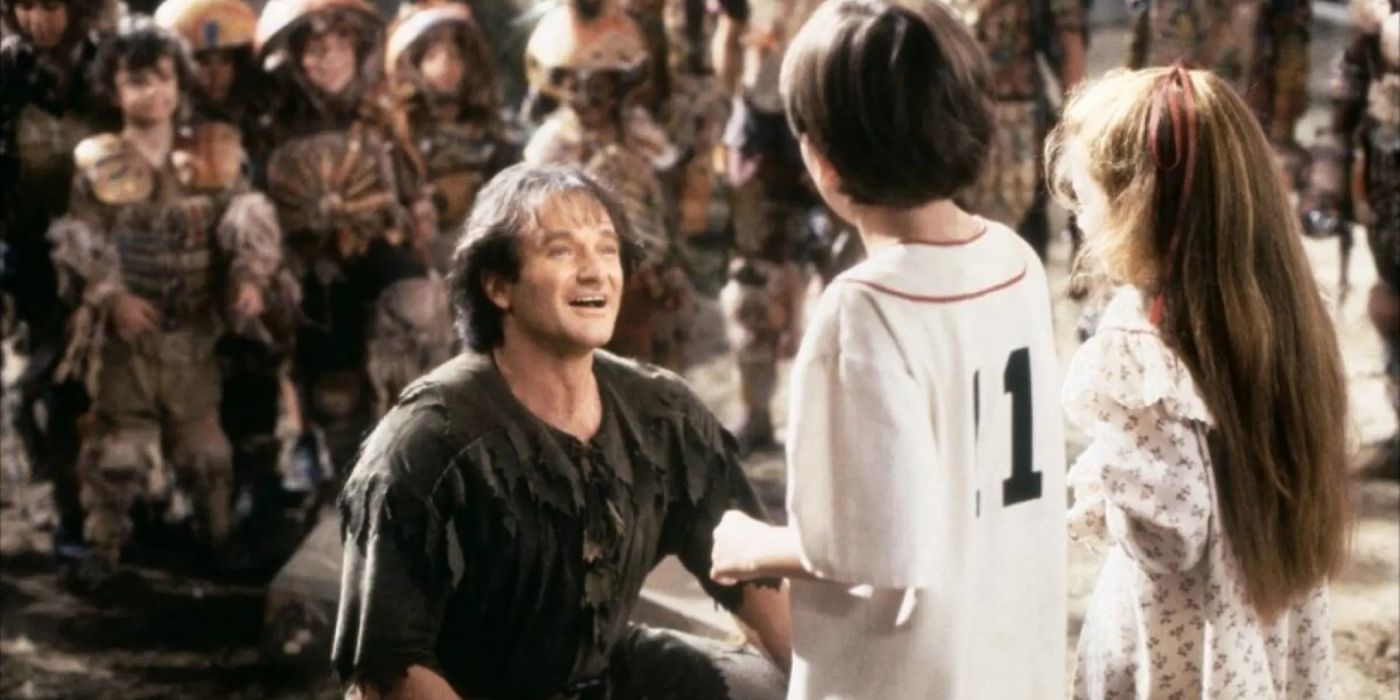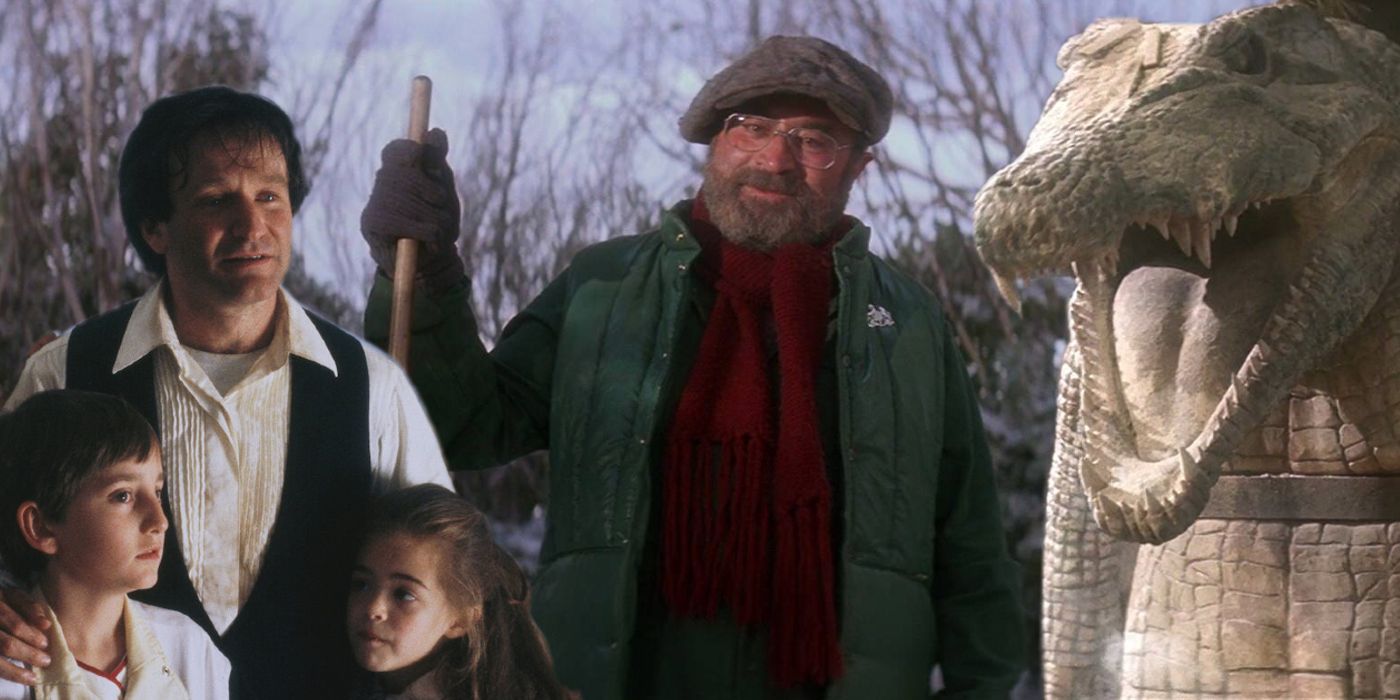
The 1991 film Hook quickly became a fan favorite, but its ending created a lot of questions. The film's plot follows an adult Peter Pan (Robin Williams), who must rediscover himself after Captain Hook (Dustin Hoffman) kidnaps his children (Charlie Korsmo and Amber Scott) and takes them to Neverland. Director Steven Spielberg shared his dislike for Hookbut the film still holds a place in the hearts of millennials due to its stellar cast, grandiose sets and magical soundtrack by John Williams. Just listening HookThe main theme brings a wave of emotions and nostalgia.
Despite all the great parts HookPeople still debate many aspects of the film's ending on social media sites like Reddit. In the third act, there is a huge battle between Peter Pan, the Lost Boys, Captain Hook and the rest of the pirates. After winning the battle, Peter returns to England with his children. In the spaces of these events, questions arise around larger elements, such as Hook's death and Peter's new family dynamics. Additionally, seemingly minor topics bring confusion, such as Smee's presence in England and Toodles' marbles. All of these topics have explanations that are worth exploring in more detail.
Hook is killed after being eaten by the crocodile clock
His death refers to the fear of the passage of time
Hook's fear of clocks and the method of death comments on the unchanging nature of time.
After being shown mercy, Captain Hook attempts to kill Peter Pan with his hook. With Tinkerbell's help, Peter dodges and hooks the crocodile clock behind him. This is where everything happens so quickly that it gets confusing. A loud roar erupts from the beast as the hook enters the crocodile's body. The jaw opens a little more. The movement only becomes visible when observing the scene at a slower speed. The watch falls out of the crocodile's mouth.
The scaffolding holding the crocodile clock in place begins to fall due to small, almost imperceptible movements of the crocodile. With another loud roar, the beast lowers its head and falls forward, resting its mouth on top of Hook. The next part requires a lot of suspension of disbelief because the crocodile never closes its jaw. Regardless, Hook is gone and the crocodile burps, implying that it has swallowed Hook. It is ironic that the crocodile watch he boasted about became his undoing in the Hook end.
Hook's fear of clocks and the method of death comments on the unchanging nature of time. Just before this death sequence, Hook comments on how he will forever be remembered as part of Neverland. Hook's fear of watches represents his fear of becoming irrelevant. He doesn't want others to forget him. He tried to avoid this by making crocodile clocks and clocks that didn't work. If time didn't pass, he couldn't be forgotten. When Hook is eaten by the crocodile clock, it's a reminder that no one can escape time forever. In time, the world will forget everyone, including Captain James Hook.
Why Peter decides to dedicate more time to his family
Peter needs to remember what childhood is like
All over HookPeter must learn to be Peter Pan instead of Peter Banning to defeat Hook and save his children Jack and Maggie. It turns out that the key to relating to your children was finding the child within yourself.
Like Pan, Peter learns to play, imagine and have fun. He stops scolding children for being undisciplined and instead participates in the world as they see it. This is first shown in the Lost Boys' hideout, but is later demonstrated again during the battle against the pirates. Peter fights like a child on an adventure, not like an adult. All of these moments are significant in Peter's life Hook end.
The changes Peter makes to Neverland connect him more to his children than when he was a workaholic, hot-tempered lawyer. The children revere him with Jack, even using Peter as their happy thought to fly home. A significant moment that indicates a fundamental change in his personality occurs near the end when he says, "What did I tell you about that window?" with an irritated voice. Then he takes on a jubilant tone saying: "Always keep it open!"This contrasts with a line from earlier in the film where he yells at Jack for simply opening the window.
Ultimately, Peter's decision to dedicate more time to his family can be attributed to his love for his children and wife Moira (Caroline Goodall). He discovered that hugging Pan allowed him to bond with Jack and Maggie. His marriage, strained by his choice to put work above all else, needed him to also be Pan. He chooses his roots as Pan over Banning when he throws his phone out the window.
The meaning of Peter returning the marbles to Tootles
Tootles regains his happy thoughts
This moment of humility for Peter allows him to internally recognize that he was wrong...
Peter giving Tootles (Arthur Malet) his marbles back is a significant moment at the end of Hook. When Peter is in Neverland, Thud (Raushan Hammond) pulls him aside and hands him a bag for Tootles. Thud says: "These are your marbles. These are your happy thoughts." This line adds weight to the moment when Peter gives Tootles his bag of marbles.
At the beginning of the film, Peter calls Tootles senile for looking for his seemingly non-existent marbles. It turns out that Tootles had a clear mind the whole time. This moment of humility for Peter allows him to internally acknowledge that he was wrong about many things, including Tootles.
Also, the magic dust in the bag of marbles makes Tootles fly immediately. Everyone else must work to fly, striving for a happy memory. This shows that he was always childish in his heart, only his happy thoughts were missing. By retrieving the marbles, Tootles can return to being a lost boy despite his age, because being a child is simply a mindset.
Smee appears in London as a street sweeper - was Hook all a dream?
Smee's presence has produced many theories
One aspect of Hook The ending that created a lot of confusion is the presence of Smee (Bob Hoskins) in London when Peter wakes up. There are two main theories as to why Smee appears in that scene. Firstly, the director may want to place doubt in the audience's mind about whether the events of the film actually occurred. Spielberg may be trying to make a Wizard of Oz kind of ending where everything was just Peter's dream.
This theory is reinforced by a statement made by Tinkerbell (Julia Roberts) immediately after Smee's scene. She says: "You know that place between sleep and wakefulness, that place where you still remember dreaming? That's where I'll always love you, Peter Pan. That's where I'll be waiting." But if Spielberg wanted to use the dream trope, he made a mistake by including Tootles flying from pixie dust. This confirms to the audience that Neverland is real.
The second theory for Smee's presence is that he followed Peter back to London. If he managed to get the magic dust, he might be able to fly. After all, he had just stolen jewelry from Hook. This can provoke a happy thought. In this case, Smee would actually be present in the scene. He could have pretended to be a street sweeper to blend in with his new surroundings. After all, if Peter had known Smee was around his children, he would have caused a commotion.
The true meaning of Hook's ending
Hook reminds audiences to live in the moment
Ultimately, the end of Hook is based on an iconic quote from Peter. He says: "Living would be a great adventure." The ending of the film reminds the audience to live life to the fullest now because time will continue to pass. Hook will die. Smee will go somewhere else. Peter's children will only be young for so long. Tootles will continue to age physically, no matter how much he maintains his childlike wonder.
However, these facts make time even more precious. As Peter does in Hookviewers should figure out what's important to them and keep it for as long as they can.
How the cliffhanger ending was received
The cliffhanger ending received mixed responses
Hook as a whole it received mixed reviews, especially when comparing the reactions of children and adults at the time of release. Although children could get lost in the wonder of rediscovering Neverland, adults were more critical of the film. This continued until the end of the film, with Smee's appearance in England causing confusion.
Roger Ebert famously didn't like it Hookbut especially the ending, believing it lasted too long. In his review of the film, he said:
Then comes the end of the film. Or the endings. One after another. Goodbyes.
Pungency. Lessons to be learned. Speeches to be made. Lost marbles to be rediscovered. Tears to be shed. The conclusion of “Hook” would be embarrassingly excessive, even for a film in which something substantial had already happened before.
More than 30 years later, adults who saw the film as children enjoy the film and have their own theories about the film's ending and Smee's appearance, while those who first saw the film as adults have more questions than answers. . In a Reddit Thread Exploring people's reaction to the film today, a commenter on a now-deleted account said: “I was very shocked to learn that it was a failure and widely considered one of Speilberg's worst, if not the worst.”
This tends to sum up the reaction of most people who first saw the film through the eyes of a child and now see it through a lens coated in nostalgia. Those who see it this way have a different appreciation for the film, appreciating the spectacle and the memories of the fleeting nature of time.
Interestingly, Spielberg himself said Empire in 2018 that the parts of the film he really relied on were the first act and the epilogueimplying that he was satisfied with the film's ending, even if he could find fault with much of his work on the film. He explained:
I felt like a fish out of water doing Hook... I didn't have confidence in the script. I had confidence in the first act and I had confidence in the epilogue. I had no body confidence from that.
When Rich Knight Cinema mix I watched the film for the first time as an adult, his criticisms of the ending only pointed out that it should have been "stronger,” but that’s because, as he also points out throughout his review, much of the rest of the film actually packs a stronger emotional punch. Knight was able to understand why so many millennials who watched the film as kids still loved it as adults, saying:
I really love that this is a film that tries to warn that life is short and that you have to make an effort to look for the magic that exists in the world, since it's so easy to forget it.
This is why the confusing ending is forgivable for many fans who enjoyed it and still enjoy it Hook. The film is a fun ride that reminds audiences of the need to experience magic in everyday life.
Hook
Directed by Steven Spielberg, Hook stars Robin Williams as Peter Banning, a tormented American lawyer who, after his children are kidnapped by Captain Hook, discovers that he is Peter Pan, having lost his memories of Neverland. To rescue his children, Peter must find his childlike spirit of adventure and regain his memories while fighting Hook and his crew. Dustin Hoffman stars alongside Williams as Captain Hook, along with Julia Roberts, Maggie Smith and Charlie Korsmo.
- Release date
-
April 10, 1991
- Writers
-
JM Barrie, James V. Hart, Nick Castle, Malia Scotch Marmo
- Execution time
-
142 minutes
